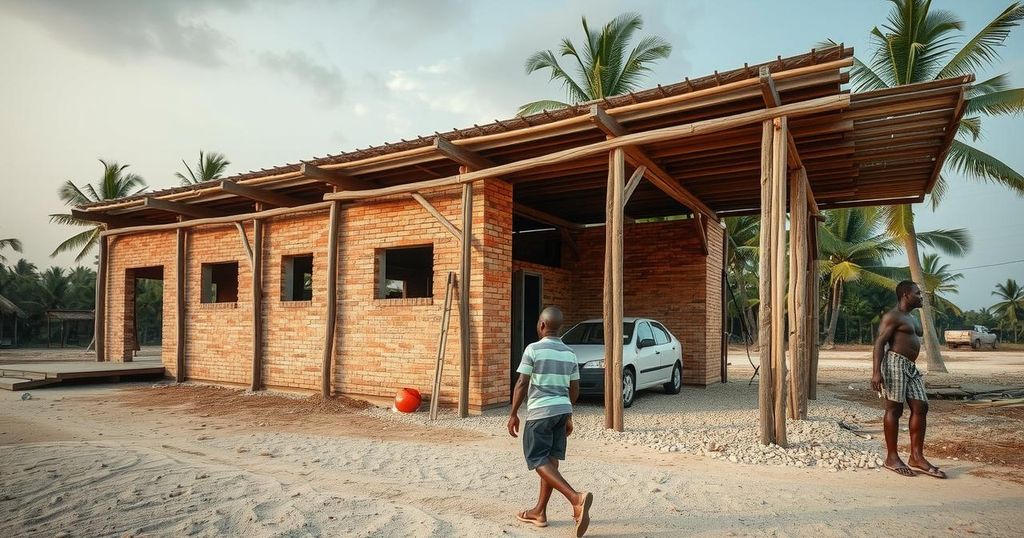Mozambique Initiates Shelter Construction for Cyclone Chido Victims
Mozambique has begun building shelters for victims of Cyclone Chido, which caused significant destruction, killing 70 and injuring 600. The government prioritizes resilient materials to rebuild homes, while UNICEF assesses ongoing needs affecting at least 174,000 individuals and warns of worsened conditions due to an ongoing cholera outbreak.
Mozambique has commenced the construction of shelters for victims of Cyclone Chido, which ravaged three northern regions of the country on Sunday, resulting in at least 70 fatalities and injuring approximately 600 individuals. During a visit to the impacted areas, Silvino Moreno, the Trade and Industry Minister, emphasized the government’s commitment to supporting storm victims, aided by international partners. The government prioritizes the use of resilient building materials to prevent damage from future storms, recognizing that most homes in affected areas were built with inadequate materials such as mud and reeds.
Prior to its impact on Mozambique, Cyclone Chido caused extensive damage in Mayotte, a group of French islands, leading to fatalities and infrastructural harm. In southern Malawi, the storm also unleashed strong winds and rainfall, damaging homes and infrastructure. The Mozambique meteorology agency has warned that more storms are anticipated during the three months of the rainy season, underscoring the need for improved preparedness among communities. According to UNICEF, the overall number of individuals affected by the cyclone could reach at least 174,000, and ongoing assessments may reveal higher figures.
In addition to the destruction of homes, thousands of classrooms and 20 health facilities have suffered damage. Michael Chimedza, the head of UNICEF’s field office in the Zambezia province, has stated that the organization is mobilizing resources to assist 50,000 individuals and has allocated funds for local response training. The cyclone has affected the provinces of Nampula, Cabo Delgado, and Niassa, resulting in over 25,000 families losing access to electricity and damaging critical infrastructure, including health units, roads, and water supplies. This disaster exacerbates the ongoing cholera outbreak in the region, raising concerns regarding public health as aid organizations work to mitigate the crisis.
Cyclone Chido’s recent impact in Mozambique highlights the vulnerability of the region to severe weather events, especially during the rainy season. This cyclone follows a pattern of climatic challenges faced by Mozambicans, particularly in areas where housing structures are not equipped to resist strong storms. The combination of a cholera outbreak complicates the situation further, as the damage to health facilities and water supply could facilitate the spread of disease, necessitating urgent humanitarian aid and response efforts from both the government and international agencies.
The construction of shelters for Cyclone Chido victims in Mozambique demonstrates the government’s commitment to rebuilding affected communities with resilience in mind. As the nation contemplates future storms, the focus on stronger construction practices and immediate humanitarian response is crucial. With thousands of individuals impacted and critical infrastructure damaged, sustained efforts are required to mitigate the adverse effects of this disaster while also addressing the ongoing cholera outbreak.
Original Source: www.voanews.com




Post Comment